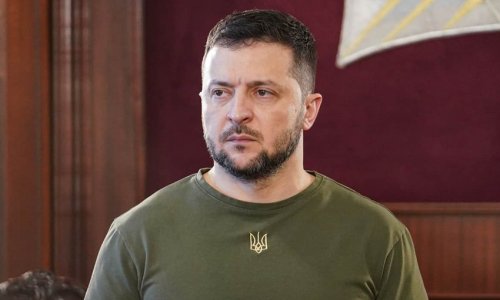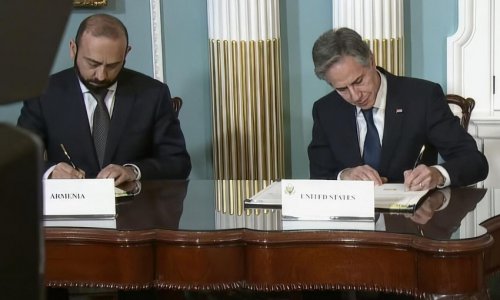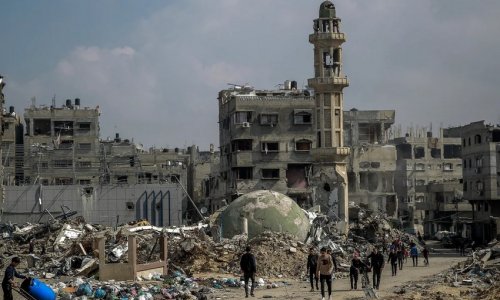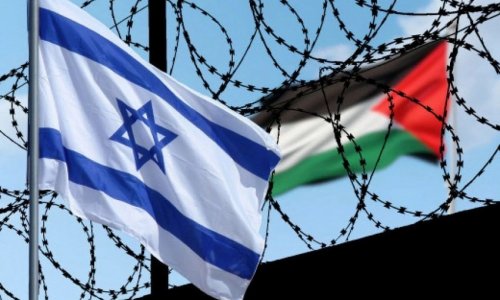Follow us !
Beaten, abused, raped...
World
23:00 | 07.01.2014
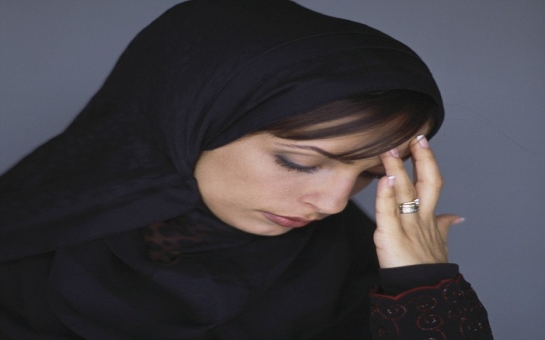
Beaten, abused, raped...
To countless migrants, Britain is the promised land. But, once here. many are cruelly exploited. Yesterday, we told the secret of slaves working in our curry houses. Today we reveal the terror of brides brought to our shores to marry their countrymen.We are waiting for the new bride. And, as is her prerogative, she takes her time to prepare. Sheep are being driven noisily along the lane outside, while in the house the electricity has failed again; lights dim, the ceiling fan whines to a halt and in the sticky gloom the scene could be any time in the past 200 years.This impression is not dispelled when the curtain at the back of the room is drawn aside and Shaista appears at last. The 26-year-old is dressed traditionally in a pretty shalwar karmeez suit, with an exquisitely embroidered floral dupatta, or scarf, wrapped about her head. Her two chaperoning brothers make a place for her on the sofa.In a few weeks’ time she will leave Punjab for ever to start a new life in inner-city East London.It is some step. She has not been outside Pakistan nor, aside from a brief meeting as teenagers, had she seen her English-born husband Shabaz before they were married by arrangement of their families last summer.How did it come about?‘My father and grandfather are friends of his father and grandfather,’ Shaista explains. ‘The families came from nearby villages.‘In 2010, Shabaz’s mother called my father about agreeing an engagement. His parents were getting an interest in me because of my qualifications, compared to those of other girls [she has a BSc in botany and MSc in psychology].‘His parents came over and it was decided. My parents asked me and I said, “OK”. On our engagement day, in November 2011, both sets of parents were here but Shabaz remained in London because of his work.‘We spoke to him on Skype. He asked me about my qualifications and family and what kind of person I am.’ (She says that the superiority of her own education compared with her husband’s is not an issue.)Five hundred guests attended the wedding across the Ravi River from Lahore. Shabaz returned to London a week later. ‘Now he is arranging immigration papers for me. The minimum time is about six months.’I had already met Shabaz — a handsome and polite security guard with a rapid-fire Cockney-Asian accent — in a cafe in the shadow of the Olympic Stadium in East London.That was a world away from Shaista’s tumbledown neighbourhood — typical of where so many of these stories begin in the settlements along the Grand Trunk Road, that fabled highway that runs 1,500 miles from modern-day Bangladesh, through India and Pakistan to the Afghan capital Kabul.Once, it was the main artery of the British Raj and the writer Rudyard Kipling described it as ‘such a river of life as nowhere else exists in the world’. Today, that river leads those who live alongside it to every corner of the world.Shaista is but one. I hope her marriage to Shabaz will be a success — indeed, many arranged marriages do work. But the rural Pakistani tradition of arranged or even forced marriages — sometimes to strangers or, more often, first cousins — of girls or young women to men living in the UK remains a troubling issue.The brides are so vulnerable. And, if it goes wrong, the consequences for them can be disastrous.A typical example is Rani. She is a small woman in a woollen hat, with bright eyes behind thick glasses. We meet at her ‘safe house’ in Britain — a dismal terrace in a town far from her former marital home. In the damp living room the wallpaper is held on by masking tape.We have to talk through an interpreter because, although she has been in Britain for almost ten years, Rani speaks very little English. Her story — one of monstrous deception and abuse by her in-laws — goes some way towards explaining why. She was born and brought up in Gujrat, a town on the Grand Trunk Road 60 miles north of Imamia Colony where I met Shaista.‘As a little girl, I had ambitions to be a doctor but my parents wanted me to learn the Koran,’ she says. ‘I was sent to a madrassa [an Islamic school] and by the age of ten I knew it by heart.’This learning led, in due course, to her disastrous arranged marriage. ‘I was 18 and my family was visiting the home of a holy man. He also happened to be receiving some people from the UK. They had come to Pakistan with the intention of finding a bride for their son. I didn’t realise this then.‘The visitors questioned me closely about my family and my life. I thought nothing more of it, but I later learned that they immediately asked the holy man to arrange a marriage between me and the son. Just like that.’A meeting was arranged between Rani’s family and the visitors.‘My future father-in-law said: “We are a religious family and we are looking for a religious girl.” My family thought he was making the right noises and said: “We would like to speak to your son.”‘My future husband was in Pakistan with them but the father-in-law made excuses for his non-appearance. He said: “He doesn’t speak Punjabi or Urdu and he is not acclimatised to the weather.”‘My family accepted this explanation and the match was agreed. My mother-in-law’s family was in such a hurry to get things done that I was married within the week.’Rani first saw her husband at their 2001 wedding ceremony.‘I was excited and afraid. When we were finally brought together, my mother-in-law told me to say “salaam” to him. He just nodded his head and that was it.‘Even so, I had no suspicions then that anything was amiss.’But doubts started to grow. These increased when she arrived at Manchester airport to be met by her father-in-law rather than her new husband.‘Then, in the car park, my husband suddenly appeared. My father-in-law said to him “your old lady’s here”, but my husband said nothing to me.‘When we got to their house I was put in the attic and my husband slept in the same room as his father. My husband did not speak to me.’At first she thought he was just very shy: ‘In those first months I did everything I could to be part of his family, even speaking in their dialect.’ Her in-laws put her to work in the house and teaching at the madrassa run by her father-in-law. Yet her husband avoided her.At this point she says she began to be physically abused, first by her mother-in-law then other family members, later her husband. Embarrassed to tell her family in Pakistan, Rani retreated into herself, desperately unhappy.Her marriage was finally consummated, but ‘it was not a satisfying physical relationship. I would get quite upset. It was not loving.’Worse, her father-in-law began to harass her. ‘He would ask me about my sex life and look at me in a way you would not look at a daughter. One day, when I was ill in bed, he came and fondled my breasts. He would kiss me and I didn’t like it.‘He said that if his son couldn’t make me pregnant, he would do it.’Rani says this molestation culminated in her father-in-law raping her at the madrassa, when she was four months pregnant by her husband.‘I could do nothing,’ she says. ‘The world was out there, but I was not part of it. After being raped I told my brother-in-law’s wife and she said: “Shut your mouth, no one will believe you.” ’Rani realised her in-laws were giving tablets to her husband, who would often disappear into his father’s room for weeks at a time. It was not until much later — in custody hearings — that she discovered the truth: her husband had suffered from severe schizophrenia since he was a teenager. The marriage was a trap to save his family’s face in the eyes of their traditional world, because he might otherwise have remained unmarried.Rani’s case is not unique, a lawyer acting for abused Pakistani women told me.In 2007, having lived as a virtual prisoner for six years, Rani fled the home with her two children. Now she says: ‘I feel cheated. My in-laws ruined my life and the lives of my children. I pray my daughter will have all the happiness that I did not.’First-cousin marriages are very common in the Anglo-Pakistani community, yet risk serious genetic consequences. Research has shown British Pakistanis are 13 times more likely to have children with birth defects than the general population.Understandably, it is a dangerous subject for an outsider to address.Indeed, MP Ann Cryer was condemned as racist when she described the practice as ‘medieval’ and driven by the desire to retain family wealth. Nilifur, who had an arranged marriage when she was 14 and was brought to England a year later, agrees with Ms Cryer.Six weeks after coming to Britain she was pregnant. She went on to have a further three children and when heavily pregnant with her fifth, she gave birth prematurely in the back of an ambulance.Most shockingly, her husband then beat her up for ‘showing another man’ — the paramedic — her ‘private parts’. That was the beginning of the end for her willingness to conform and stay in the marriage.We meet in another ‘safe house’ above a mill town very different from her native city of Mirpur in Kashmir. Again we must speak through an interpreter because she was very seldom allowed outside in 14 years of violent marriage by arrangement.‘I had hoped I would be in a lovely home and a warm environment,’ Nilifur says. ‘Now I am just glad I am away from those dogs.’She was the helpless participant in a first-cousin marriage in which her own hopes for a professional life were ignored.‘As a child I wanted to carry on at school and become a pilot or a doctor. But my own father was under his mother’s control and she decided I would marry her daughter’s son in England. You just have to close your eyes and go where you are directed.‘I had only had one cycle of menstruation when I married. I had not met or spoken to my cousin before. I only learned it was going to happen by overhearing conversations.’A sign of Nilifur’s isolation after arriving in England is that she doesn’t even know where she initially lived — only saying it was ‘somewhere in London’.‘I was not encouraged to see the outside world,’ she says. ‘I spoke no English. Once, I was allowed to go to the doctor by myself. It was only nearby, but I got lost and it took me an hour to find my way home. My role was to look after the house. My mother-in-law even used to make me wash her feet, and from the day I arrived I was never left alone with my husband.‘In the evening, my husband would stay up and watch TV with his mother, while I was upstairs. She decided when he went to bed. Only then would he talk to me.’Her first two children were both girls and her disappointed mother-in-law called them ‘bastards’.She says her husband told her: ‘If my mum told me to throw you and the children in a well, I would do it’.Nilifur is adamant that others should learn from her terrible experience.‘We must raise our daughters to value themselves. Maybe if I had stayed in Pakistan I would not have gone through this hell,’ she says.‘Now I want to make sure that my eldest daughter will be a doctor. No one will stop her.’In Pakistan it is apparent that the country is pulling in different, and not always expected, directions on the issue of women’s rights.At the Lahore Gymkhana Club I watched a women’s cricket match being played under the approving gaze of Imran Khan’s uncle, the club secretary.But my guide, another sixtysomething from the educated elite, lamented that many among the younger generation were becoming more religious and intolerant.Yet the issue of arranged marriages is clearly more cultural than it is Islamic.Shaista’s father does not like her insistence on scarf-wearing outside the home, but he has a traditional view about marriage.And while in Lahore I also met maternity nurse Rukhsana Yousef , another young Pakistani woman whose family has arranged her engagement to a British Asian she had never met.‘My fiance’s uncle talked to my family,’ Rukhsana explained to me. ‘His aunt and uncle came over to see me. They liked me, so they put me on Skype for the boy and we liked each other.’Two months elapsed between the first contact and agreement of marriage.Now here is the surprise: Rukhsana and her fiance are both Christians. The relative who instigated the arrangement is a church pastor.So it is that Pakistan will continue to launch vulnerable young women into urban Britain.Nilifur is particularly bitter about her own experience. ‘The culture needs to change,’ she says. ‘First-cousin marriage is all about control. If you can keep a woman in the family, you can control them and the wealth they are attached to.’British lawyer Kosar Hussain-Is’haq, who has helped many women such as Nilifur, wants change imposed: ‘Brides step into the complete unknown when they come here through arrangements made with British Pakistani men and, sadly, I have found it can lead to terrible ordeals.‘I believe stricter checks must be made in Pakistan by British diplomats before visas are granted and potential husbands should have to declare and prove they are capable of giving their own and independent consent to marriage.‘Nobody can really judge whether a new bride is going to be abused or be cherished, but a bigger safety net is required and the governments of both Britain and Pakistan must look at new legislation to protect these women.’(dailymail.co.uk)ANN.Az

